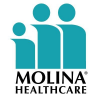POSITION SUMMARY :
Under the general supervision of the Case Management Coordinator, the RN Case Manager acts as a patient advocate to hospital clients.
An autonomous role that coordinates, negotiates, procures services and resources for, and manages the care of complex patients to facilitate achievement of quality and cost efficient patient outcomes.
The RN Case Manager identifies opportunities to reduce cost while ensuring the highest quality of care is maintained. Review criteria are applied to determine medical necessity for admission and continued stay.
The RN Case Manager provides clinically based case management, discharge planning, and care coordination to facilitate the delivery of cost-effective quality healthcare and assists in the identification of appropriate utilization of resources across the continuum of care.
The RN Case Manager works collaboratively with interdisciplinary staff internal and external to the organization, and participates in quality improvement and evaluation processes related to the management of patient care.
The case manager is on-site and available seven days a week, as well as holidays and, therefore, is required to work a weekend rotation and an occasional holiday and will required to be on call.
POSITION EDUCATION / QUALIFICATIONS :
- Graduate from an accredited school for nursing required.
- A valid license as a Registered Nurse with the State of Texas is required.
- Certification in Case Management (CCM) is highly desired.
- Candidate must demonstrate proficiency in both the English and Spanish language.
JOB KNOWLEDGE / EXPERIENCE :
Knowledge in the areas of case management and utilization management, experience with Managed Care and utilization management as it relates to third-party payers preferred.
- Three to five years clinical experience is required, with experience in a Hospital or acute care setting being strongly preferred
- Experience in use of InterQual and or Milliman criteria and review processes highly desirable.
- Knowledge and understanding of Medicare and Medicaid guidelines and regulations pertaining to utilization review and discharge planning.
POSITION RESPONSIBILITES :
- Assists in the development and implementation of the case management program.
- Collaborates with already existing programs and departments to ensure appropriate resource utilization by
all patients being followed in a caseload.
- Works with nurse managers, other clinical departments, and division directors in program development.
- Establishes and / or attempts appropriate caregiver forums to provide program teaching / information and seeks
program effectiveness feedback.
- Provides orientation and ongoing education specific to case management.
- Participates in extending case management approach.
- Acts as a consultant to all disciplines specific to case management program.
- Performs ongoing evaluation of case management program.
- Participates in daily rounds, providing education to other team members re : Case Management
- Provides follow-up to system issues and reports individual practitioner variances appropriately to PA or
Department Director.
Participates in respective nursing unit meetings providing Case Management education and new regulatory
requirements as needed per the Case Management Supervisor.
- Directs, coordinates, and provides case management to patients in caseload.
- Assesses the patients within the caseload to identify needs, issues, resources, and care goals.
- Through proper reporting mechanisms, completes case management assessment, reviews admitting
diagnoses / problem(s), determines plan to address client's needs, and optional / preferred level of care.
- Develops a discharge plan early on in admission.
- Implements and coordinates interventions that will lead to goals in plan.
- Monitors the effectiveness of the plan.
- Participates in case finding and preadmission evaluation screening to ensure reimbursement.
- Identifies potential transition planning problems in a timely manner to set up services required.
- Works with attending physician and care team members to move patient through the hospital system and set up
appropriate services or referrals.
- Identifies need for new resources if gaps exist in service continuum and initiates creative care delivery options
- Reviews the medical records of all observation and inpatient admissions to determine the medical necessity for
admission and continued stay, using pre-established criteria (InterQual or Milliman) with appropriate frequency.
Continues review of all patients using criteria and determines need for continued hospitalization based upon third
party payer / insurance guidelines.
- Assesses clinical, including psychosocial, system parameters.
- Establishes planning to determine goals and objectives and care setting to optimally meet patient needs. Develops a
discharge plan in a timely manner.
- Conducts necessary conferences and team meetings regarding specific patient needs.
- Implements interventions that lead to the patient accomplishing goals established in plan.
- Coordinates the necessary resources to accomplish goals developed in plan.
- Proactively affects system to facilitate efficient flow of care.
- Gathers information from sources to enable case manager to monitor the plan's effectiveness.
- Evaluates the effectiveness of the plan (including variance) in reaching patient's outcomes and goals.
- Makes appropriate changes to plan as necessary.
- Documents patient / patient representative understanding of case management plan.
- Documents avoidable day and / or delay in service variances as per policy.
- Recognizes and immediately intervenes in cases of suspected abuse or neglect.
- Recognizes National Patient Safety Goals and Core Measures as applicable to the patient populations served.
- Plays an essential role in assisting physicians, nurses, and staff with an accurate determination of a patient's
observation status. The case manager is an important resource in preventing delayed discharges of observation patients.
- Identifies and monitors observation admissions daily, to determine the correct patient status.
- Consults with physicians, nursing, admitting, and outside insurance case managers to determine the appropriate
status of patient.
Assumes the role of review coordinator for observation services; reviews medical record for appropriateness of
status and level of care and facilitates the level of care, utilizing InterQual or Milliman for observation.
- Works with physicians, nurses, staff, patients, and families to arrange prompt and safe discharge.
- Case managers must take telephone orders from physicians changing patient status from observation to inpatient
admission. This should be done when monitoring observation status. A call or page should be made to a physician if the case manager believes that this should be an inpatient admission and should not wait until the 24 hours are ending before conversion.
Case managers must actively monitor patients on observation status and seek to clarify their status as close to the 24-hour benchmark as possible.
- Develops a discharge plan with nursing when appropriate.
- Completes daily Observation log in a timely manner.
- Accurately applies InterQual or Milliman criteria 95% of the time in determining status. Refers appropriately to the
PA when medical decision making determination is necessary.
Consistently follows Condition Code 44 policy when IP status requires changing to Observation for Medicare
patients 95% of the time.
- Consistently follows the Observation policy for all other payers. (correct determination of start time)
- Reviews the medical records of all inpatient admissions to determine the medical necessity for admission and
continued stay, using pre-established criteria.
- Identifies cases that fail daily to meet criteria and refers these cases to appropriate physician advisor.
- Assists and educates attending physicians on an on-going basis.
- Contacts the attending physicians daily on cases that lack adequate documentation warranting acute hospitalization.
- Contacts the attending physician to notify him or her of the decision to issue notice of non-coverage. Explains UR
process and insurance coverage requirements. Obtains physician's written concurrence when necessary.
Informs the patient and / or next of kin when insurance coverage must be terminated for the current admission.
Issues HINN letter.
Reinstates insurance coverage when the patient's condition becomes acute and meets criteria again. Issues
reinstatement letter.
Continues review of all patients using criteria and determines need for continued hospitalization based upon third
party payer / insurance guidelines.
- The initial review applying InterQual criteria is completed within 24 hours of admission.
- Continued Stay Review is completed no greater than every 48 hours (72 hours for Critical Care) or more frequently
as dictated by discharge screening criteria.
- Document timeframe for next review 95% of the time.
- Proceeds to issue Hospital Issued Notice of Non-coverage and Hospital Requested Review for Medicare patients
according to policy.
- Refers cases not meeting criteria appropriately, following contract requirements for all other payers.
- Completes case management assessment of patients and support systems in order to facilitate the most appropriate
and timely transition plan.
- Introduces self to the patient / family, explains the case manager role, and provides them with a business card.
- Assesses documentation in the medical record appropriate to level of care.
- Documented level of care recorded when needed prior to nursing home placement.
- Begins to prepare patient / family regarding optional pathway for care including several complications / options that
may occur.
Provides transitional planning information to patient or patient's representative 24 hours before discharge when
appropriate.
- Documents referrals to nursing homes, rehab, hospitals, and home care.
- Documents meetings with family, patient, or doctor.
- Assembles necessary referrals, discharge summary, and pertinent information for placement prior to the day of
discharge.
- Sends forms to institutions or home health agencies within 48 hours of discharge when appropriate.
- Documents home-care lists and alternate level-of-care facilities lists provided to families when appropriate.
- Offers choice to Medicare patients and completes documentation as outlined in the policy.
- Initiates the Important Message to Medicare policy for when discharge has been determined to be within 48 hours
or less.
- Utilizes support staff efficiently. (transportation, FAXing to agencies, chart copying)
- Communicates the discharge plan to patients / patient representatives and pertinent healthcare team members.
- Collaborates with Quality Management Department : Performs quality assessment reviews and studies both
concurrently and retrospectively as required by the hospital's PI plan, JCAHO standards, and third-party payer
regulations.
Applies generic quality screens / indicators concurrently to patient medical records and accurately abstracts relevant
patient care data to determine if quality screens are flagged. Performs first line reviews on potential quality issues
as requested by director
Refers all other potential quality of care issues identified, not reviewed, as part of the quality assessment screening
to the physician advisor to facilitate timely follow up.
- Collects potentially avoidable day data for system Performance Improvement.
- Refers potentially avoidable day cases to the PA when the medical staff triggers are met.
- Refers quality issues to the Case Management Supervisor, CMO and / or PA appropriately.
- Provides clinical data / information to contracted third-party payers while patient is hospitalized to ensure continued
reimbursement and to avoid reimbursement delays within 24 hours of request.
Accurate InterQual and Milliman documentation that meet the requirements of third party payers for admission
certification and continued stay approval is documented 95% of the time.
Interacts, communicates, and intervenes with multidisciplinary healthcare team in a purposeful, goal-directed
fashion. Works proactively to maximize the effectiveness of resource utilization.
Anticipates, initiates, and facilitates problem resolution around issues of resource use and continued hospitalization
and discharge planning.
Establishes a means of communicating and collaborating with physicians, other team members, the patient's
payers, and administrators.
- Utilizes appropriate resources in cases that present ethical dilemmas.
- Explores strategies to reduce length of stay and resource consumption within the care-managed patient populations,
implements them, and documents the results.
Communicates to appropriate members of healthcare team the patients at risk of losing insurance coverage or
HINN notification of Medicare and Medicaid patients.
Maintains a proactive role to ensure appropriate documentation concurrently to minimize inefficient resource
utilization and prevent loss of reimbursement.
Reviews physician documentation and, when needed, follows procedures to seek clarification of documentation
relative to diagnosis and comment, on the patient's clinical state
- Participates in daily rounds on nursing units
- Refers to PA those cases in which appropriate resource utilization is to be evaluated, such as IP MRI, IP
endoscopy, or whenever the test ordered does not relate to the reason for admission or diagnosis / symptom
Other duties as assigned.
LINES OF REPSONSIBILITES :
Director of Resource Management








